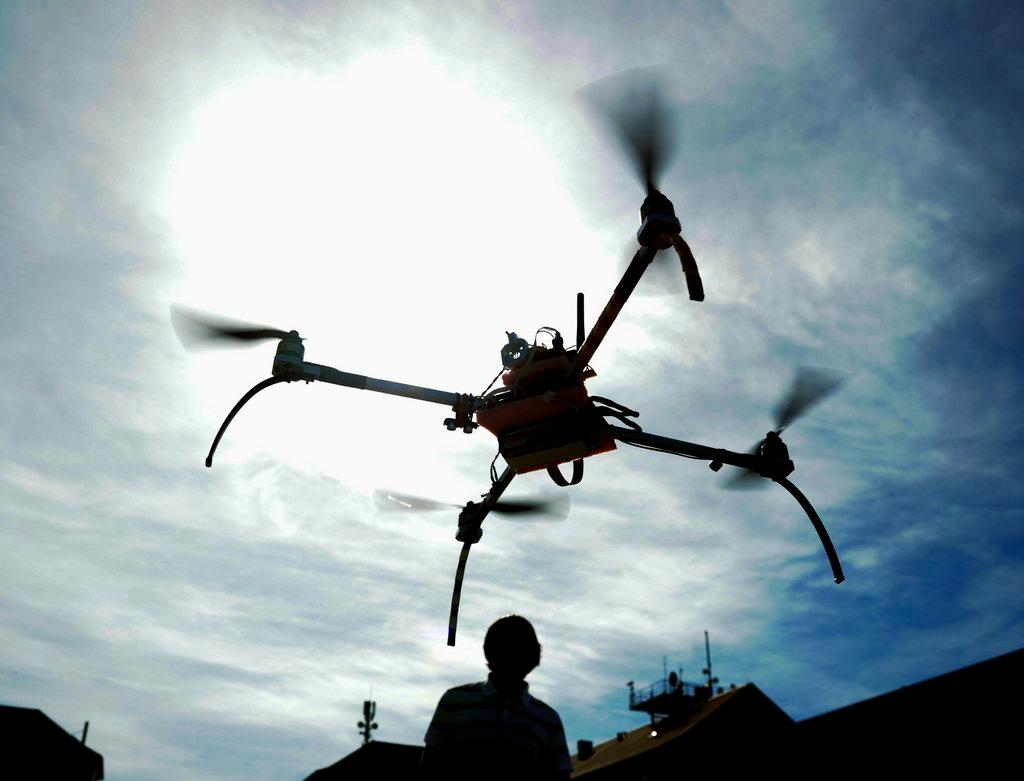
Crop-spraying drones to be authorised

Switzerland has become the first country in Europe to allow the use of drones to spray plants and crops.
The authorisation was requested by the Agroscope instituteExternal link – a government agricultural research body – and granted by the Federal Office for Civil Aviation (FOCA) on Thursday.
Agroscope argued that drones are a useful alternative to noisy and inaccurate helicopters when it comes to the spraying of phytosanitary products. Drones, they say, can fly lower and with more precision, thus avoiding wastage or misdirected spray.
Tests were conducted to establish procedures whereby airspace security, precision methods for spraying, and environmental norms were respected, Agroscope said.
The rules laid out by FOCA say that drones will only be authorised if shown to be able to follow an automatic flight trajectory over a certain distance with maximum variations of 50 cm.
Such drones will also undergo tests every three years to determine they meet OFAC standards.
Drone nation
Over 100,000 drones are estimated to have been bought by amateurs in Switzerland in recent years. Regulations have remained largely liberal, and FOCA’s website says that drones weighing less than 30 kilograms may still be operated without a permitExternal link, under certain conditions.
However, authorities are mulling a system that would require all drones over 250g to be registered, which may enter into force next year.

More
Welcome to the Drone Valley

In compliance with the JTI standards
More: SWI swissinfo.ch certified by the Journalism Trust Initiative

















![The four-metre-long painting "Sonntag der Bergbauern" [Sunday of the Mountain Farmers, 1923-24/26] had to be removed by a crane from the German Chancellery in Berlin for the exhibition in Bern.](https://www.swissinfo.ch/content/wp-content/uploads/sites/13/2025/12/01_Pressebild_KirchnerxKirchner.jpg?ver=a45b19f3)











You can find an overview of ongoing debates with our journalists here . Please join us!
If you want to start a conversation about a topic raised in this article or want to report factual errors, email us at english@swissinfo.ch.